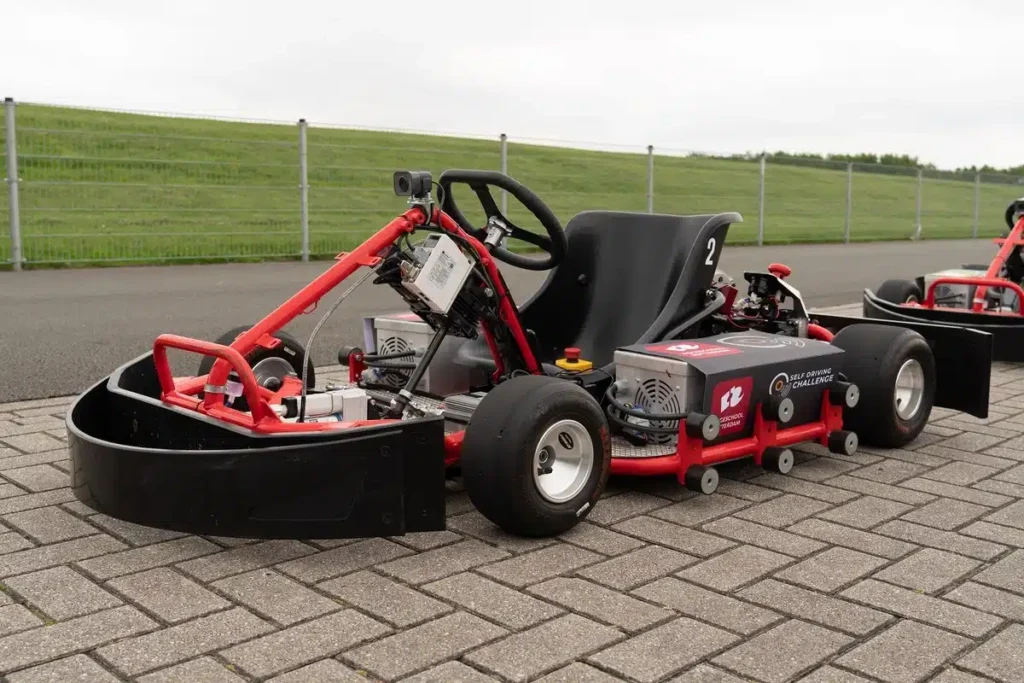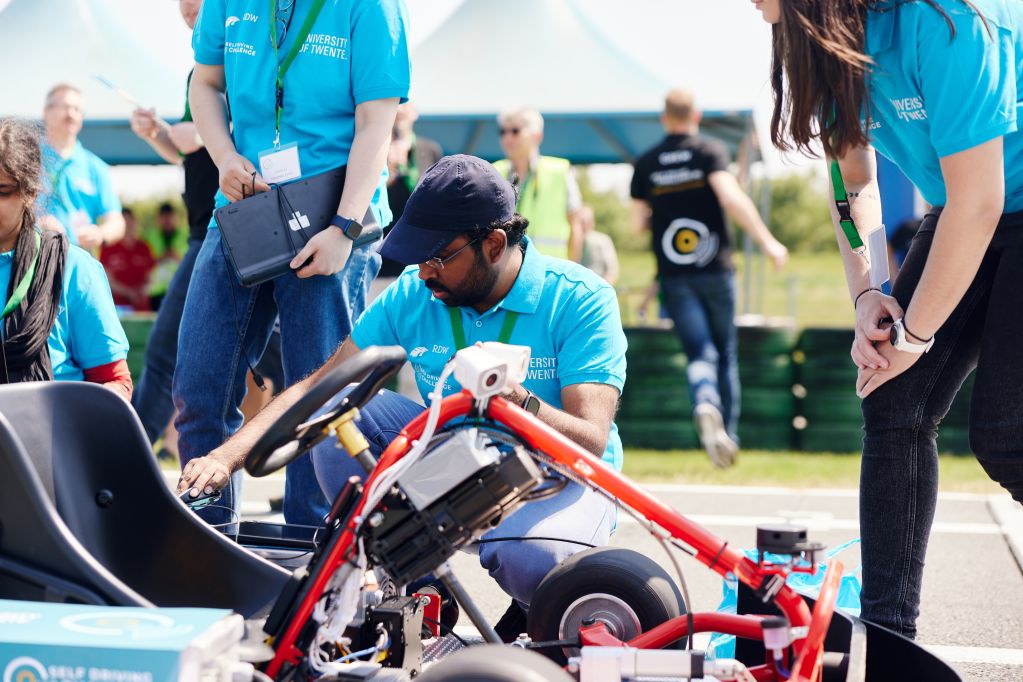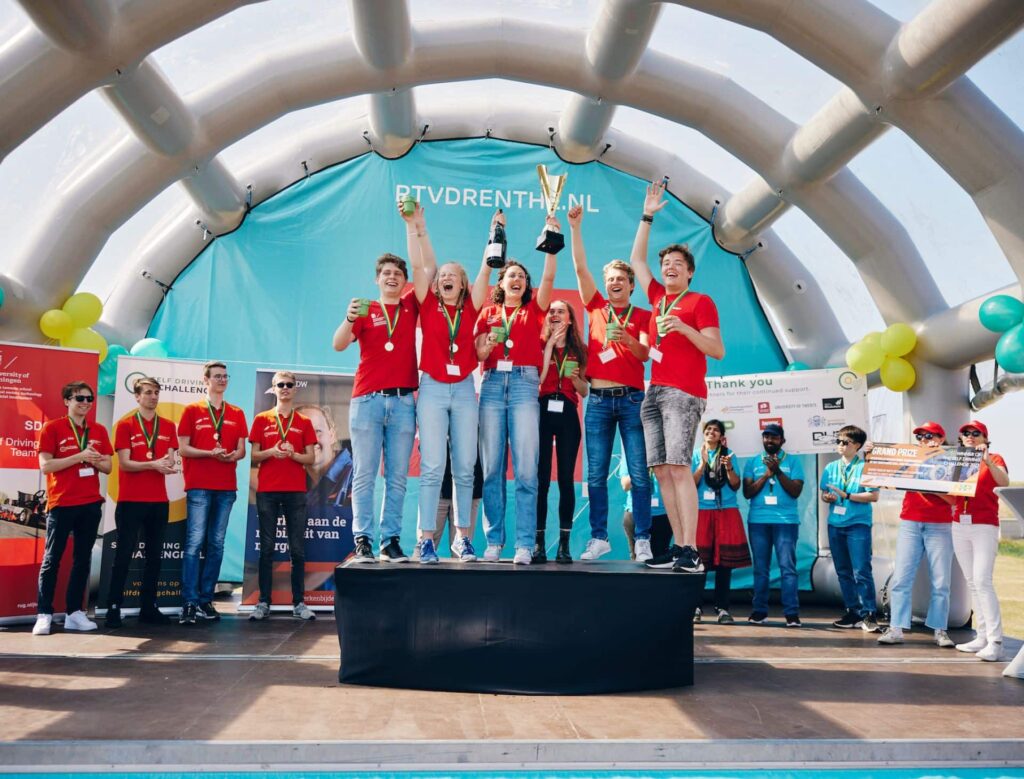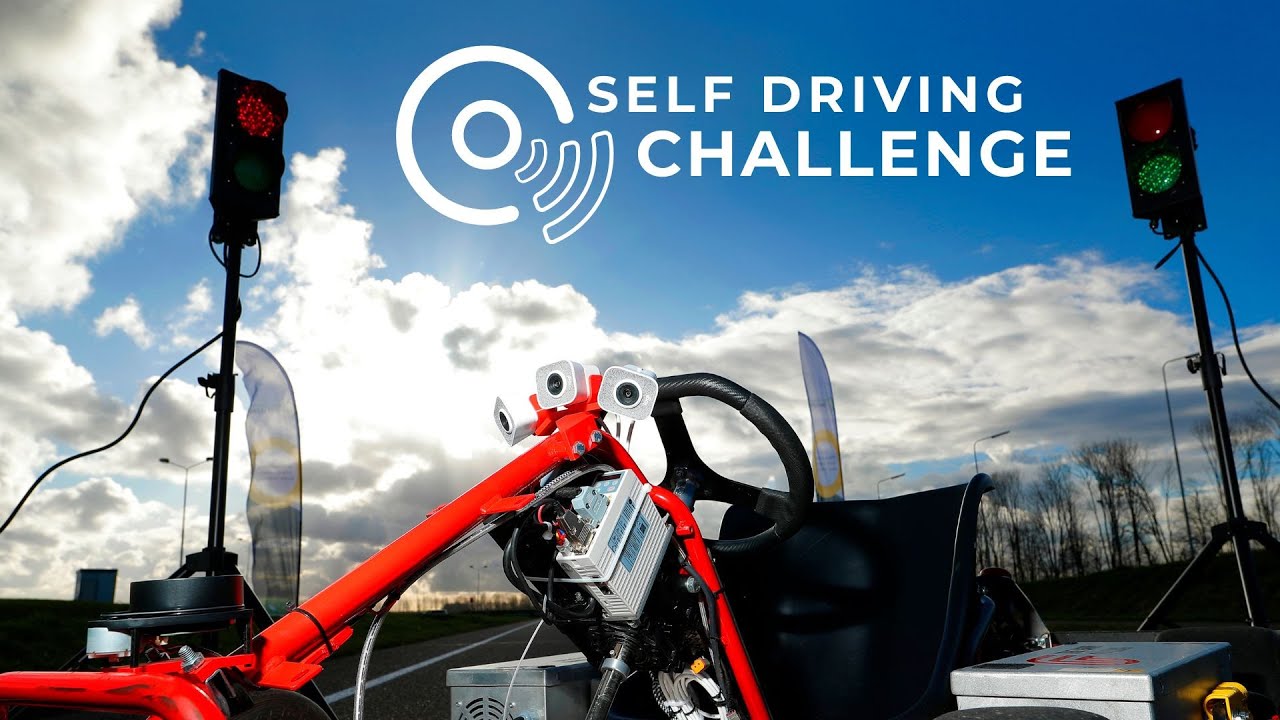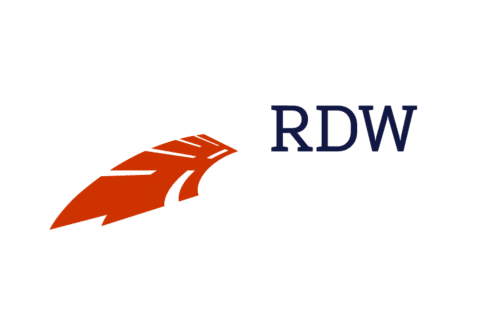Self driving challenge
The Self Driving Challenge is an initiative of the RDW to offer young talent the opportunity to further develop their skills in the field of smart mobility for six months. A unique project in which student teams compete with each other by racing their self-driving vehicle on the circuit. In collaboration with the RDW, The Grid – Racing has developed the self-driving kart, which has been used since the start of the project in 2019.
Powered by
The Dutch RDW organizes the competition to gain knowledge about the complexity of autonomous vehicles and how these vehicles make choices. For example, the RDW, which among other things, approves cars for use on public roads, wants to prepare for a future in which self-driving cars will play an increasingly important role. The ambition of the challenge is to use other vehicles and techniques in addition to the factory class kart, and to grow this project into a global challenge across three continents. The Self Driving Challenge is – in addition to the many other initiatives and collaborations that the RDW has in the field of smart mobility – an innovative way to gain knowledge about self-driving vehicles. In addition, the challenge offers the RDW the opportunity to profile itself as an attractive employer for young, smart people.
History
(2019)
The first event of the Self Driving Challenge was held on a test track of the RDW in Lelystad. At that time, only 1 school participated, The Hanze University of Applied Sciences in Groningen. The game was played between team Blue and team Red. Both teams used the same kart but differed in different software. Ultimately, it was Team Blue that managed to drive the kart independently for almost a quarter of the track, thus becoming the first winner of the Self Driving Challenge.
(2020)
It is still fresh in our minds that 2020 was the year that the corona pandemic had the world in its grip. The Self Driving Challenge also had to suffer. Although the physical race unfortunately had to be canceled, the organization decided to organize a virtual race. Once again it was team Blue and Red from Hanze University of Applied Sciences who competed against each other. The race could be followed online via a livestream and once again it was team Blue that walked away with the win.
(2021)
During the 3rd edition of the Self Driving Challenge, a new challenger emerged for Hanze University of Applied Sciences. Windesheim from Zwolle was there and determined to take the trophy to Zwolle. The match was reported live from a studio specially set up for this purpose. It was an exciting race, but in the end reigning champion Hanze University managed to hold on and walk away with the silverware after a narrow victory.
(2022)
However, in 2022 the Hanze University of Applied Sciences’ winning streak would end. This year they faced competition from yet another challenger: Rotterdam University of Applied Sciences. And from an old acquaintance: Windesheim University of Applied Sciences from Zwolle. The latter was crowned the rightful winner of the Self Driving Challenge this year. Hanze University had to settle for 2nd place and Rotterdam University of Applied Sciences had to make do with the bronze medal.
(2023)
The battle started on Thursday June 8, with not 3 but 6 student teams from colleges and universities in the Netherlands. This was the fifth time that the RDW organized the competition for autonomously driving karts. With twice as many teams as last year and karts equipped with even more sensors than ever, the final race promised to be a true spectacle, and it was. First place would ultimately go to a school from Groningen. However, this time it is not the Hanze University of Applied Sciences that takes the win. No, it was the University of Groningen that received the cup.
2024
This year, 9 teams are participating in the Self Driving Challenge. Of these, 5 participate in the closed category and 4 in the open category.
Teams participating in the closed category receive a computer from the RDW to program and control an electric RDW kart on loan. Teams are not allowed to change the hardware in this category.
The teams in the open category, unlike the closed category, bring their own vehicle. These vehicles must meet a number of minimum requirements. The teams have freedom in hardware, sensor options and computing power. The RDW does not offer these teams any support with the hardware or the vehicle.
